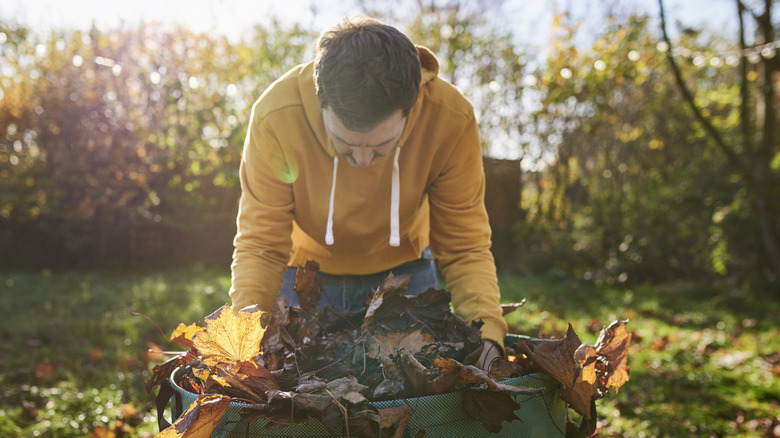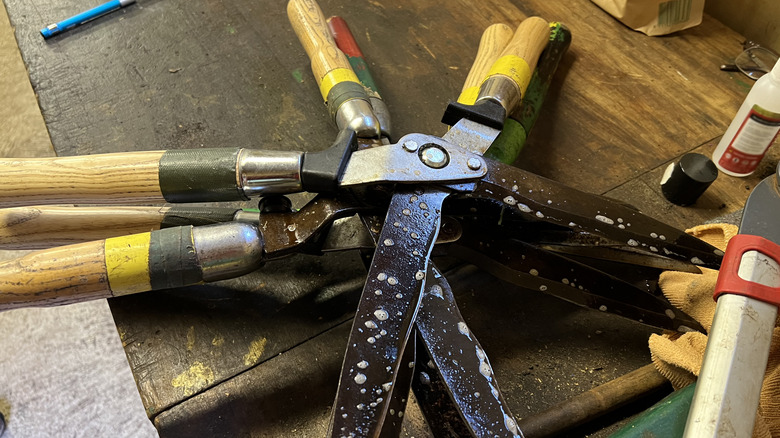The Fall Garden Maintenance Task That Helps Protect Plants From Disease
In the garden, fall is almost as busy as spring. Winding your garden down and finishing last-minute chores before the weather turns for good can occupy much of your free time. Before you schedule your whole weekend, though, make sure to set aside time to clean your garden tools. While there's nothing glamorous about this chore, it's one of the best ways to avoid mistakes when maintaining your yard in the fall.
Tools should be kept clean throughout the year, but in the fall, wetter, cooler weather presents an increased risk of spreading diseases like powdery mildew and viral diseases. From plant pathogens to insect pests, trouble can spread quickly in your garden, and your tools are one of the main culprits for spreading disease. Garden tools that make contact with plants, especially infected materials, should be cleaned after each use. Washing everything from pruners and saws to shovels and hoes with a liquid detergent and hot water will help prevent the spread of disease.
Garden tools can be treated with various disinfectants, but one of the most common methods is to make a bleach spray solution. Using 1 part bleach to 9 parts water, you can immerse your tools or spray them, but it's important to dry them afterwards so they don't rust. If you're working with diseased plants or want to avoid spreading pathogens, carry a bucket of solution with you as you work.
Protecting your garden plants from disease
With your tools clean, it's time to turn your attention to fall garden cleanup. In addition to clean tools, autumn cleanup is one of the most important things you can do in the fall to prevent plant diseases and pest infestations. Often, diseases that took hold during the summer continue to thrive in the wet fall season, and cleaning them up before winter helps prevent sources of infection next spring. Unfortunately, even if you like to leave some of your perennial seed heads for birds to eat during the winter, you may have to cut them back if they're infected with something like powdery mildew.
While you work, pay attention to your sleeves, pant legs, and gloves. If you're working with diseased plants, you can avoid spreading pathogens by taking simple measures such as changing your clothes or washing your hands. Avoid composting these plant materials unless your compost gets hot enough to reliably kill spores and bacteria.
Like most gardeners trying to make the most of an autumn garden, the shorter days and longer chore lists can leave you feeling overwhelmed. Unfortunately, cleaning your garden and tools isn't a simple one-and-done garden chore. It's something you need to maintain throughout the summer and into fall. And by staying on top of your chores throughout the year, cleaning up your garden at the end of summer isn't quite as big a hassle.

